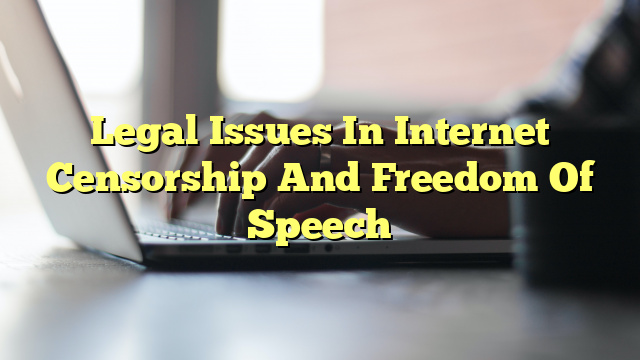Table of Contents
- How does censorship affect freedom of speech?
- What is the issue with Internet censorship?
- What is US law concerning censorship and freedom of speech?
- What are the laws regarding Internet censorship?
How does censorship affect freedom of speech?
Censorship affects freedom of speech in a number of ways. Censorship limits the ability of individuals to share their opinions and ideas with others, whether through traditional media or online. It also can limit access to information, making it difficult for people to get the information they need to make informed decisions. Additionally, censorship can lead to self-censorship, where people avoid expressing their opinions or engaging in conversations for fear of punishment or retribution.
In some cases, censorship can be used to suppress the truth or to stifle dissent. Censorship can also be used to silence critics of a government or to protect the powerful from criticism. Some countries use censorship to further their own political goals, such as by blocking websites that are critical of the government or by limiting access to certain types of content. In such cases, censorship can be used to control public opinion and to manipulate public discourse.
What is the issue with Internet censorship?
The issue with Internet censorship is that it can limit the free flow of information and ideas. It can be used to suppress or manipulate public opinion, to limit access to certain types of content, and to prevent people from accessing information they need to make informed decisions. In some cases, governments have used Internet censorship to further their own political goals.
The problem is that Internet censorship is often carried out without public consultation or oversight. It can be done without any legal basis, and it can be difficult to challenge or overturn. This can lead to violations of human rights, such as the right to freedom of expression and the right to access information.
What is US law concerning censorship and freedom of speech?
The United States has a long history of protecting freedom of speech and is considered to be one of the most tolerant countries in terms of freedom of expression. The First Amendment to the United States Constitution provides protection for freedom of speech, including the right to express opinions, engage in speech, communicate ideas, and access information without fear of government censorship.
However, there are certain exceptions to this right, including obscenity, fighting words, and incitement, as well as speech that is deemed to be a threat to national security. These exceptions are limited in scope and are subject to constitutional scrutiny.
What are the laws regarding Internet censorship?
In the United States, censorship of online content is subject to the same legal protections as censorship of traditional media. The same exceptions to freedom of speech apply to Internet content, and any censorship must be done for a legitimate government purpose and must be reasonably tailored to achieve that purpose.
However, the Internet presents additional challenges when it comes to regulating content. The sheer volume of content available online makes it difficult to monitor and control, and it can be difficult to identify the source of offensive or illegal content. Additionally, many websites are based in foreign countries, making it challenging to enforce US laws.
In response to these challenges, the US government has sought to encourage voluntary measures by Internet companies to address online content that violates US laws. For example, the US Department of Justice has encouraged companies to develop industry-wide standards for regulating content and has used its enforcement powers to enforce those standards where necessary.
In addition, Congress has passed legislation that is aimed at addressing specific issues, such as child pornography and the sale of illegal drugs. The US Supreme Court has also issued decisions that address the use of filters and other forms of technological protection to block access to certain types of content.
Overall, the US has a long history of protecting freedom of speech and has implemented measures to ensure that the Internet remains a free and open platform for expression and dialogue. However, there are still challenges in regulating content on the Internet and ensuring that the right balance between freedom of speech and censorship is maintained.


Internet censorship can limit freedom of speech, creating complex legal issues. Examples include blocking hate speech, libel and false advertising.